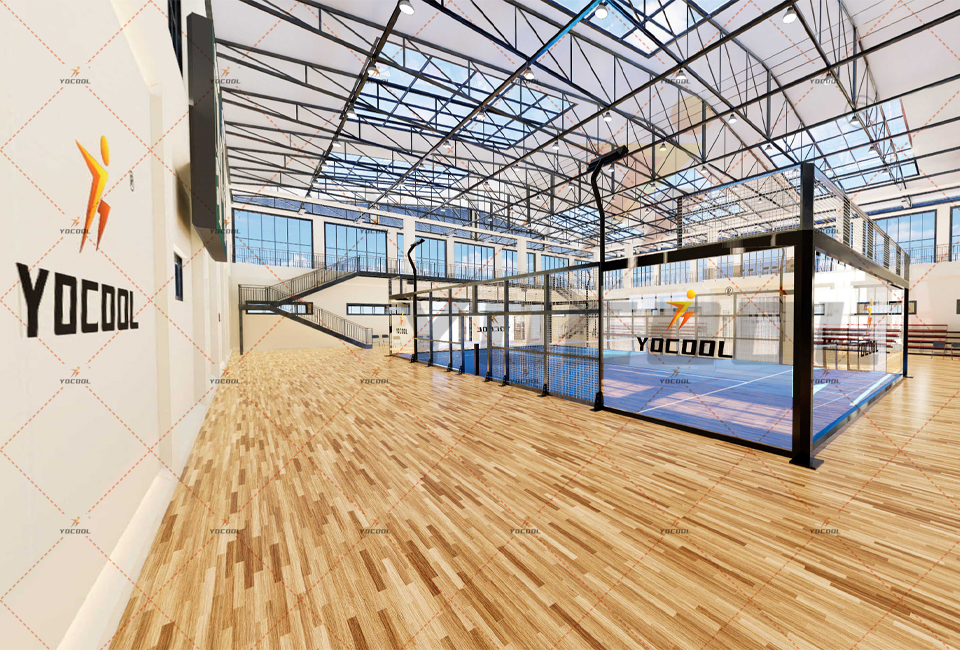

The Importance of Industrial Flooring Enhancing Durability and Safety in Work Environments
Industrial flooring plays a pivotal role in the functionality and safety of various work environments, ranging from factories and warehouses to laboratories and production facilities. The choice of flooring in these settings is not merely an aesthetic consideration; it directly impacts productivity, maintenance costs, employee safety, and overall operational efficiency. In this article, we will explore the various aspects of industrial flooring, its significance, and the types of materials commonly used.
Durability and Resistance
One of the primary factors that distinguish industrial flooring from residential options is its durability. Industrial floors must withstand heavy machinery, foot traffic, and sometimes even chemical spills. Traditional flooring materials like wood or carpet do not offer the resilience needed for such environments. Instead, industrial flooring materials such as concrete, epoxy, and vinyl are preferred for their capacity to endure wear and tear.
Concrete is a common choice due to its strength and longevity. However, it can be susceptible to stains and cracks. To enhance its performance, many facilities opt for epoxy coatings. These coatings are applied over concrete and provide a seamless, impermeable barrier that protects against damage, facilitates easier cleaning, and can even improve the floor's aesthetic appeal through various color options.
Safety Considerations
Safety is a paramount concern in any industrial setting. Slips, trips, and falls are some of the most common workplace accidents, often exacerbated by inappropriate flooring materials. Therefore, selecting the right industrial flooring can significantly mitigate these risks. Non-slip surfaces, for instance, are essential in areas where moisture or spills are likely; textured coatings, rubber flooring, and specialized vinyl options can help enhance traction.
Moreover, flooring that is resistant to chemicals and impacts can prevent hazards related to machinery and hazardous materials. For instance, in food processing facilities, flooring must not only be durable and slip-resistant but also meet specific health regulations to prevent contamination.
Maintenance and Cleanliness
Another important advantage of industrial flooring is ease of maintenance. Many industrial environments produce debris, chemicals, and residues that require frequent and thorough cleaning. Floors that can be easily cleaned reduce downtime and maintenance costs, making operations more efficient.

Epoxy and polished concrete floors can be simply mopped or hosed down, and they usually do not harbor bacteria or allergens as porous surfaces do. Choosing a flooring type with low maintenance requirements can lead to substantial long-term savings and contribute positively to the overall working environment.
Types of Industrial Flooring
There is a diverse range of industrial flooring types available, each suited for different applications.
1. Epoxy Flooring A top choice for factories and warehouses due to its durability and customization options. It's resistant to a wide variety of chemicals and can be applied quickly.
2. Concrete Flooring Although it requires sealing to improve its longevity, concrete offers a strong and reliable surface. Stains and cracks can be addressed with timely maintenance.
3. Vinyl Flooring Known for its versatility and design options, vinyl is often used in areas that require a good balance of comfort and durability, such as hospitals and laboratories.
4. Rubber Flooring Ideal for environments where workers stand for long periods, rubber flooring provides comfort and slip resistance, making it suitable for gyms and production areas.
5. Tile Flooring In settings like kitchens and bathrooms, tile offers both durability and style, while being easy to clean.
Conclusion
In summary, industrial flooring is a critical component of any operational framework within an industrial setting. It must be robust enough to handle the demands of heavy machinery and foot traffic, yet also safe and easy to maintain. With numerous materials and designs available, selecting the ideal flooring solution can enhance workplace safety, improve employee comfort, and streamline cleaning processes. Businesses must prioritize their flooring choices not only because of their immediate impact but also due to their long-term implications on productivity and safety. Investing in high-quality industrial flooring is not just a necessity; it's a cornerstone of operational success.
High-Performance Industrial Flooring Solutions China Paddle Tennis Court for Sale
High-Performance Industrial Flooring Solutions Durable & Cost-Effective
Homogeneous Transparent Floor – Durable & Stylish Rubber Floor Solutions
Premium Homogeneous Transparent Floor for Durable & Stylish Spaces Rubber Floor Solutions
Premium Sports Floor Solutions Durable PVC Sports Floor & Rubber Floor for Gyms
Durable Rubber Composite Floor Premium Rubber Floor & Mats Solutions